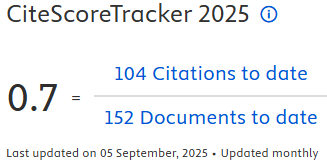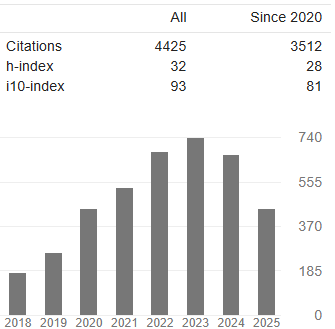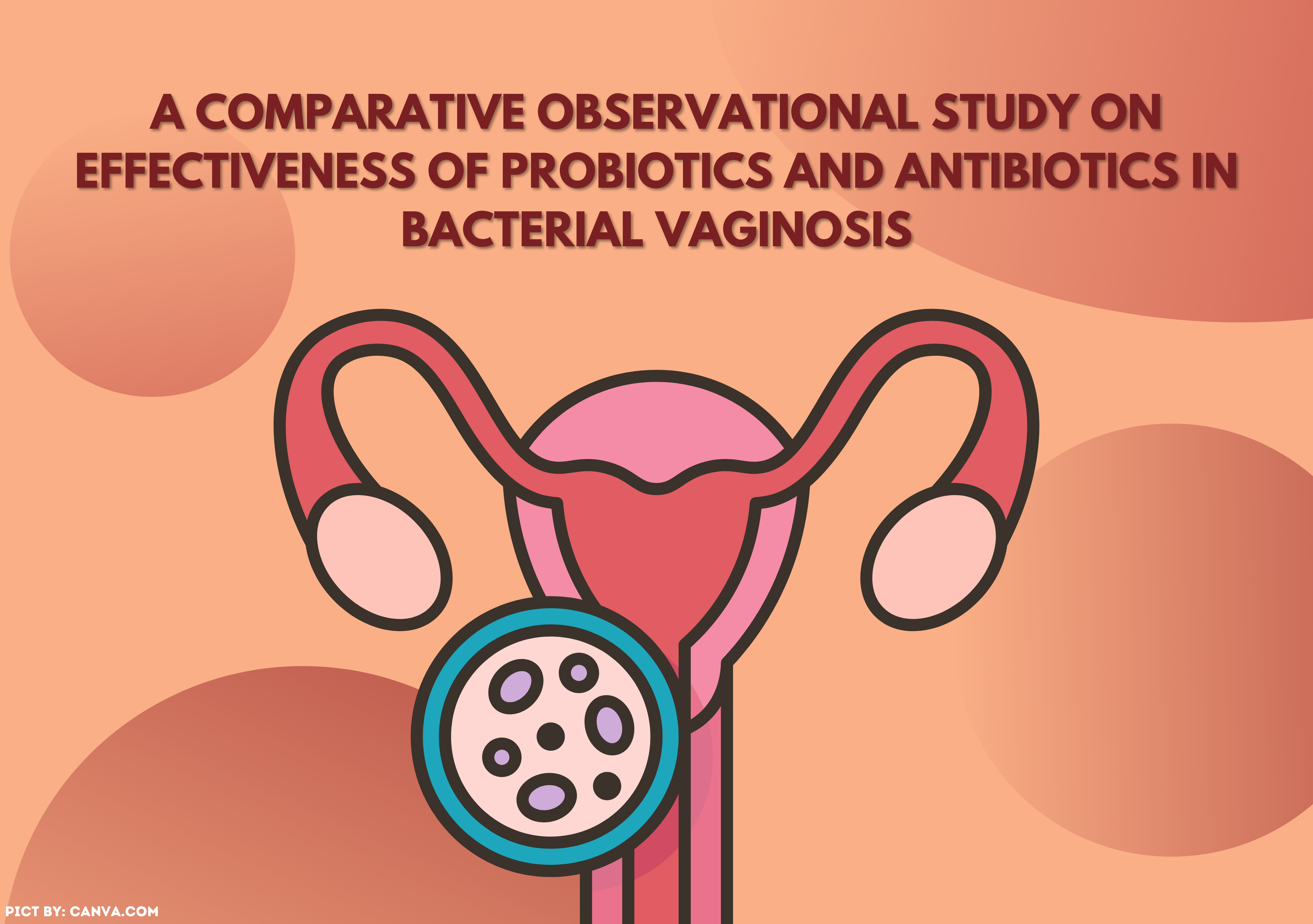A STUDY TO ASSESS KNOWLEDGE ATTITUDE AND PRACTICES TOWARDS COVID-19 AMONG FRONTLINE WORKERS OF A NORTH INDIAN DISTRICT
Downloads
ABSTRACT
Frontline workers have been fighting hard since the novel coronavirus, also known as COVID-19, was declared a global pandemic by the WHO on March 12th, 2020. This study assessed the level of knowledge of frontline workers, attitudes of frontline workers, and how well the frontline workers of the area adapted to the ongoing epidemic. This study used a cross-sectional research design conducted among 440 frontline workers Palwal district in Haryana. Information regarding knowledge, attitude, practice, and socio-demographic characteristics was obtained using semi-coded and pretested questionnaire. Data were analysed using SPSS version 20. Independent t-test, ANOVA, Pearson's rank correlation test, and multivariate linear regression were used. A p-value of <0.05 was considered significant. The mean of knowledge, attitude, and practice scores were 79.67 (SD = 1.81), 27.4 (SD = 0.98), and 22.47 (SD = 1.4), respectively. 94.8% of frontline workers had excellent knowledge, 68.6% had excellent attitude, and 57.7% had reasonable practice with significant positive correlation between the three. Knowledge score varied significantly with occupation (p = 0.003). Regression analysis showed that attitude score varied significantly with age, gender, and occupation (p<0.05). Practice score varied significantly with age (p<0.05). The majority of the HCWs had had excellent knowledge and attitude, but moderate practice towards COVID-19 with a significant positive correlation between them. Knowledge appeared to be significantly associated with profession; attitude with age, gender, occupation, source of information; and practice with age alone. Healthcare workers (HCWs) were using less authentic sources for information, which is an important aspect that needs immediate correction as ultimately it affects knowledge and can be reflected in attitude and practice.
Keywords: COVID-19, knowledge, attitude, practice, frontline workers
Abebe, T. B. et al. (2016) ‘Healthcare professionals' awareness, knowledge, attitudes, perceptions and beliefs about Ebola at Gondar University Hospital, Northwest Ethiopia: A cross-sectional study', Journal of Public Health in Africa, 7(2). doi: 10.4081/jphia.2016.570.
Alfahan, A. et al. (2016) ‘In the era of corona virus: health care professionals' knowledge, attitudes, and practice of hand hygiene in Saudi primary care centers: a cross-sectional study', Journal of Community Hospital Internal Medicine Perspectives, 6(4), p. 32151. doi: 10.3402/jchimp.v6.32151.
Baig, A. M. et al. (2020) ‘Evidence of the COVID-19 Virus Targeting the CNS: Tissue Distribution, Host-Virus Interaction, and Proposed Neurotropic Mechanisms', ACS Chemical Neuroscience. American Chemical Society, pp. 995–998. doi: 10.1021/acschemneuro.0c00122.
Clements, J. (2020) ‘Knowledge and behaviors toward COVID-19 among U.S. residents during the early days of the pandemic', medRxiv, p. 2020.03.31.20048967. doi: 10.1101/2020.03.31.20048967.
Dahab, M. et al. (2020) ‘COVID-19 control in low-income settings and displaced populations: what can realistically be done?', Conflict and Health, 14(1). doi: 10.1186/s13031-020-00296-8.
‘Emerging respiratory viruses, including COVID-19: methods for detection, prevention, response and control' (2020).
Hagger, M. S. and Hagger, M. S. (2019) ‘The Reasoned Action Approach and the Theories of Reasoned Action and Planned Behavior', in Psychology. Oxford University Press. doi: 10.1093/obo/9780199828340-0240.
Huynh, G. et al. (2020) ‘Knowledge and attitude toward COVID-19 among healthcare workers at District 2 Hospital, Ho Chi Minh City', Asian Pacific Journal of Tropical Medicine, 13(6), pp. 260–265. doi: 10.4103/1995-7645.280396.
Ioannidis, J. P. A. (2020) ‘Coronavirus disease 2019: The harms of exaggerated information and non"evidence"based measures', European Journal of Clinical Investigation, 50(4). doi: 10.1111/eci.13222.
Johns Hopkins Coronavirus Resource Center. Date: 14.08.2020 (2020).
Kandasamy, S. et al. (2020) ‘Knowledge, attitude and practices associated with COVID-19 among health care workers: A cross-sectional study in India.' doi: 10.21203/rs.3.rs-87442/v1.
Man Fatally Poisons Himself While Self-Medicating for Coronavirus, Doctor Says - The New York Times (2020).
Moorthy, V. et al. (2020) ‘Data sharing for novel coronavirus (COVID-19)', Bulletin of the World Health Organization, p. 150. doi: 10.2471/BLT.20.251561.
Nemati, M., Ebrahimi, B. and Nemati, F. (2020) ‘Assessment of iranian nurses' knowledge and anxiety toward covid-19 during the current outbreak in iran', Archives of Clinical Infectious Diseases, 15(COVID-19). doi: 10.5812/archcid.102848.
Nguyen, L. H. et al. (2020) ‘Articles Risk of COVID-19 among front-line health-care workers and the general community: a prospective cohort study'. doi: 10.1016/S2468-2667(20)30164-X.
Olum, R. et al. (2020) ‘Coronavirus Disease-2019: Knowledge, Attitude, and Practices of Health Care Workers at Makerere University Teaching Hospitals, Uganda', Frontiers in Public Health, 8, p. 181. doi: 10.3389/fpubh.2020.00181.
Paul, G. et al. (2020) ‘Assessment of knowledge gaps and perceptions about COVID-19 among health care workers and general public-national cross-sectional study', Journal of Anaesthesiology Clinical Pharmacology, 0(0), p. 0. doi: 10.4103/joacp.joacp_326_20.
Puspitasari, I. M. et al. (2020) ‘Knowledge, Attitude, and Practice During the COVID-19 Pandemic: A Review', Journal of Multidisciplinary Healthcare, Volume 13, pp. 727–733. doi: 10.2147/JMDH.S265527.
Raab, M. et al. (2020) ‘Knowledge, attitudes and practices towards viral haemorrhagic fevers amongst healthcare workers in urban and rural public healthcare facilities in the N'zérékoré prefecture, Guinea: A cross-sectional study', BMC Public Health, 20(1), p. 296. doi: 10.1186/s12889-020-8433-2.
Rehman, H., Ghani, M. and Rehman, M. (2020) ‘Effectiveness of basic training session regarding the awareness of Ebola virus disease among nurses of public tertiary care hospitals of Lahore', Journal of the Pakistan Medical Association, 70(3), pp. 477–481. doi: 10.5455/JPMA.15677.
Saqlain, M. et al. (2020) ‘Knowledge, attitude, practice and perceived barriers among healthcare workers regarding COVID-19: a cross-sectional survey from Pakistan', Journal of Hospital Infection, 105(3), pp. 419–423. doi: 10.1016/j.jhin.2020.05.007.
Srikanth Bhagavathula, A. et al. (2020) ‘Novel Coronavirus (COVID-19) Knowledge and Perceptions: A Survey of Healthcare Workers', medRxiv, p. 2020.03.09.20033381. doi: 10.1101/2020.03.09.20033381.
‘WHO announces COVID-19 outbreak a pandemic' (2020).
Zhong, B. L. et al. (2020) ‘Knowledge, attitudes, and practices towards COVID-19 among chinese residents during the rapid rise period of the COVID-19 outbreak: A quick online cross-sectional survey', International Journal of Biological Sciences, 16(10), pp. 1745–1752. doi: 10.7150/ijbs.45221.
Zhou, W. et al. (2020) ‘Effects of media reporting on mitigating spread of COVID-19 in the early phase of the outbreak', Mathematical Biosciences and Engineering, 17(3), pp. 2693–2707. doi: 10.3934/mbe.2020147.
- The authors agree to transfer the transfer copyright of the article to The Indonesian Journal of Public Health effective if and when the paper is accepted for publication.
- Authors and other parties are bound to the Creative Commons Attribution-NonCommercial-ShareAlike 4.0 International License for the published articles, legal formal aspect of journal publication accessibility refers to Creative Commons Attribution-NonCommercial-ShareAlike 4.0 International License (CC BY-NC-SA), implies that:
- Attribution ” You must give appropriate credit, provide a link to the license, and indicate if changes were made. You may do so in any reasonable manner, but not in any way that suggests the licensor endorses you or your use.
- NonCommercial ” You may not use the material for commercial purposes.
- ShareAlike ” If you remix, transform, or build upon the material, you must distribute your contributions under the same license as the original.































